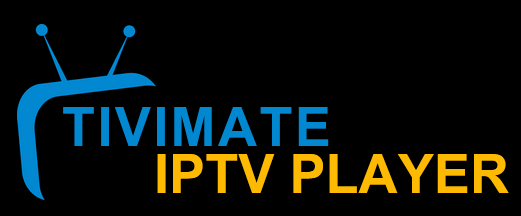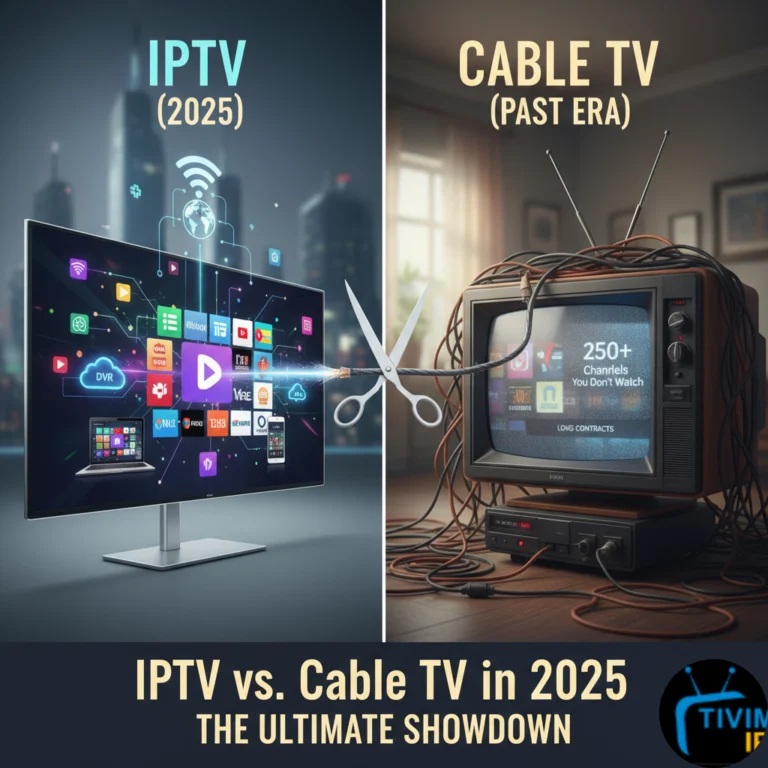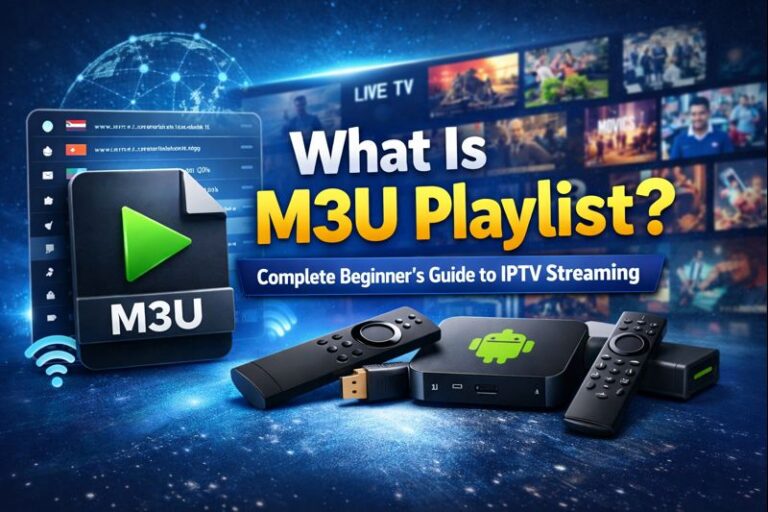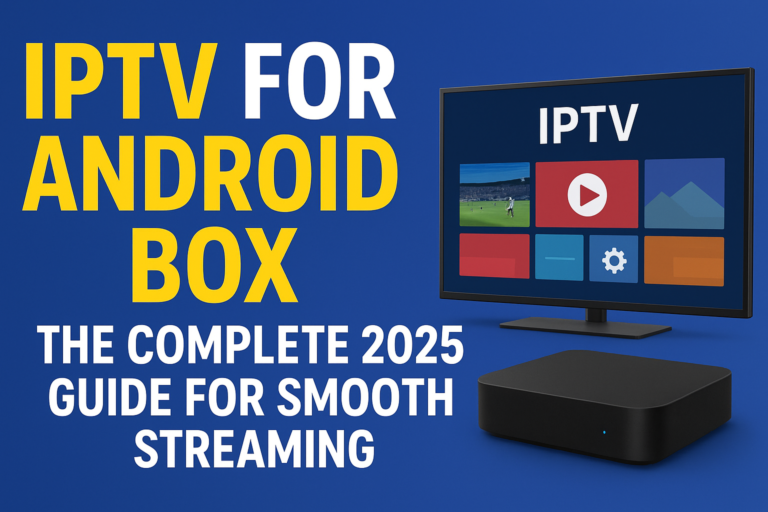The way we watch television has been completely transformed. The days of being tethered to expensive, long-term cable contracts filled with channels you never watch are over. In 2025, the new king of home entertainment is IPTV (Internet Protocol Television), offering a smarter, more flexible, and budget-friendly alternative for millions of cord-cutters.
The cord-cutting revolution is stronger than ever. Projections for 2025 show a massive shift, with millions more households ditching traditional pay-TV for superior streaming solutions. If you’re tired of your cable bill and considering the switch, you’re in the right place. But is an IPTV service genuinely better than your old cable box? This ultimate showdown breaks down everything you need to know.
Table of Contents
Table of Contents
What is IPTV and How Does It Beat Cable?
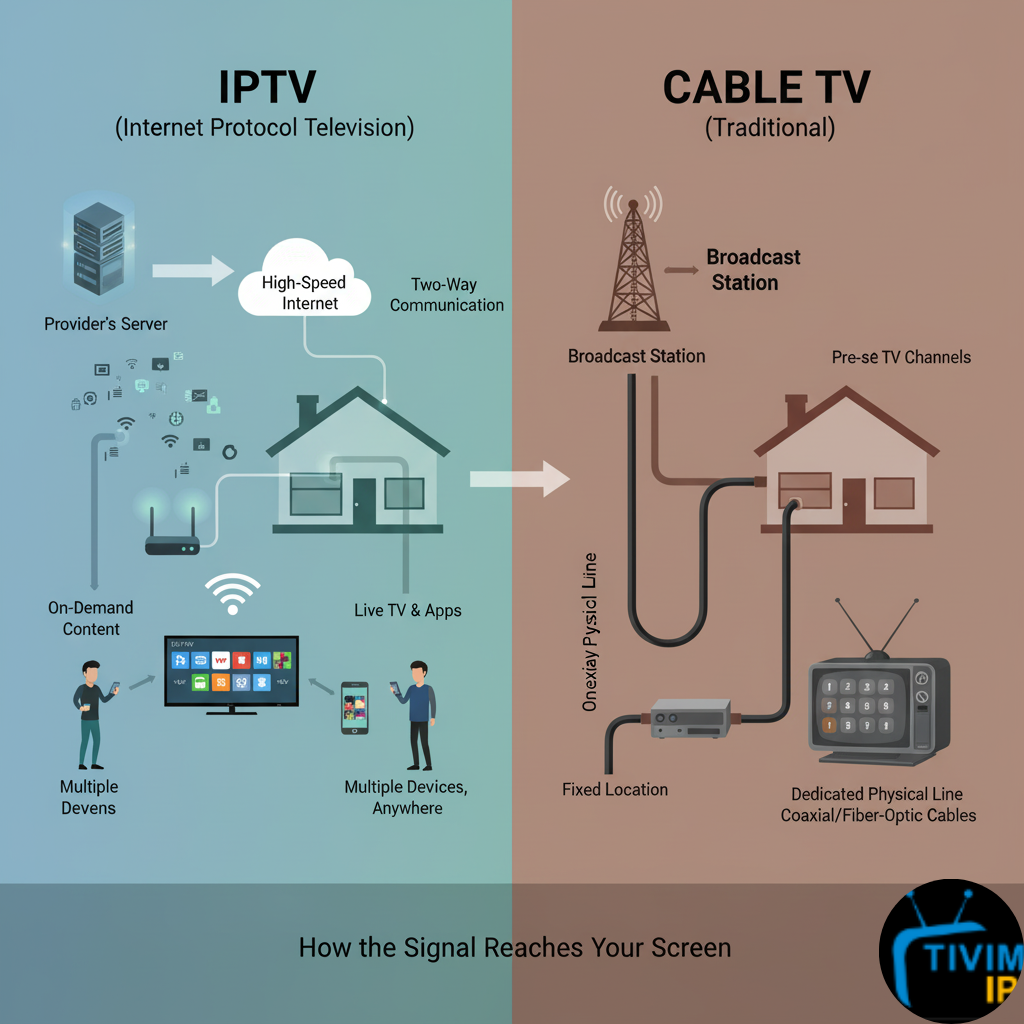
The core difference between IPTV vs. cable TV is the delivery method. It’s a battle between old infrastructure and modern internet technology.
- Cable TV uses a network of physical coaxial or fiber-optic cables to broadcast a signal to your home. It’s a one-way broadcast of all channels simultaneously, and your set-top box tunes into your selected frequency. It’s reliable but incredibly rigid.
- IPTV delivers television content over your existing high-speed internet connection. When you choose a channel, a request is sent to the provider’s server, which then streams only that content directly to your device. This makes IPTV a more efficient and versatile technology that isn’t tied to a physical location.
The Ultimate Comparison: IPTV Service vs. Cable TV
| Feature | IPTV (Internet Protocol Television) | Cable TV (Traditional) |
|---|---|---|
| Technology | Delivers live TV channels & VOD over your internet. Needs stable Wi-Fi but no dedicated TV lines. | Uses a physical network of coaxial/fiber-optic cables. |
| Content & Channels | Highly customizable. Access thousands of live TV channels, international content, sports packages, and massive Video-on-Demand (VOD) libraries. | Rigid, pre-set channel bundles. Adding or removing channels is difficult and expensive. |
| Picture Quality | Superior quality, with most providers offering HD, 4K, and even 8K streams. Quality depends on internet speed. | Generally stable signal, but 4K content is less common and often costs extra. |
| Interactive Features | Rich with features like a modern EPG (Electronic Program Guide), pause/rewind live TV, cloud DVR, and catch-up TV. | Limited. Basic DVR hardware is often available for an extra rental fee. |
| Device Compatibility | Works on almost any device: Smart TVs, Firestick, Android boxes, smartphones, and computers. | Requires a provider-issued set-top box for each television, with monthly rental fees. |
| Cost & Contracts | Far more affordable. Flexible monthly IPTV subscriptions with no contracts. Want to learn more about the business side? See how to start your own IPTV business and understand the profitable model. | Expensive, with bills often exceeding $100/month. Requires long-term contracts and hidden fees. |
| Portability | Watch anywhere with an internet connection. Your subscription follows you on your phone, tablet, or laptop. | Tied to the physical cable connection in your home. No portability. |
Why Millions Are Cutting the Cord for IPTV in 2025
The decline of cable TV isn’t just a trend; it’s a permanent shift in what consumers demand. The main reasons for this mass exodus are crystal clear:
- Sky-High Costs: The number one driver for cord-cutting is price. Cable bills are inflated with equipment rentals, broadcast fees, and regional sports surcharges. An IPTV service eliminates these, offering a transparent, low monthly cost.
- Unmatched Flexibility: Viewers no longer want to pay for 300 channels just to watch five. IPTV allows you to get packages tailored to your interests, from sports to international news, without the bloat.
- On-Demand Entertainment: Services like Netflix have trained us to watch what we want, when we want. IPTV’s massive VOD libraries and catch-up TV features give you the same on-demand freedom for television shows and movies. Many services even let you test the waters first with a best free IPTV trial to see the vast content available.
Frequently Asked Questions
Is IPTV legal?
Yes, IPTV is legal when services distribute licensed content. Avoid unlicensed providers that may use pirated material.
What internet speed do I need?
For HD, 5 to 10 Mbps is usually enough. For 4K, 25 Mbps or higher is recommended.
Can IPTV replace cable completely?
Yes for most households. IPTV covers live TV, sports, news, and on-demand programs. Cable may only be more reliable if your internet is weak.
Do I need a VPN for IPTV?
A VPN can improve privacy and unlock geo-restricted content. Use a high-quality VPN to maintain streaming speeds.
How do I start an IPTV business?
Read this detailed guide: How to Start Your Own IPTV Business.
Where can I find free IPTV trials?
Many providers let you test their service before subscribing. See this list: Best Free IPTV Trial.
The Verdict: IPTV is the Undisputed Champion of Television
For the modern viewer in 2025, an IPTV service is unequivocally the superior choice over cable TV. It delivers better flexibility, a wider selection of global content, 4K streaming quality, and incredible cost savings. While traditional cable might appeal to those with very poor internet, its outdated model and high prices make it a relic.
Ready to take control of your entertainment and slash your monthly bills? It’s time to explore the world of IPTV and embrace the future of television. For more tips and inspiration on setting up your ideal system, check out our posts on Pinterest.
